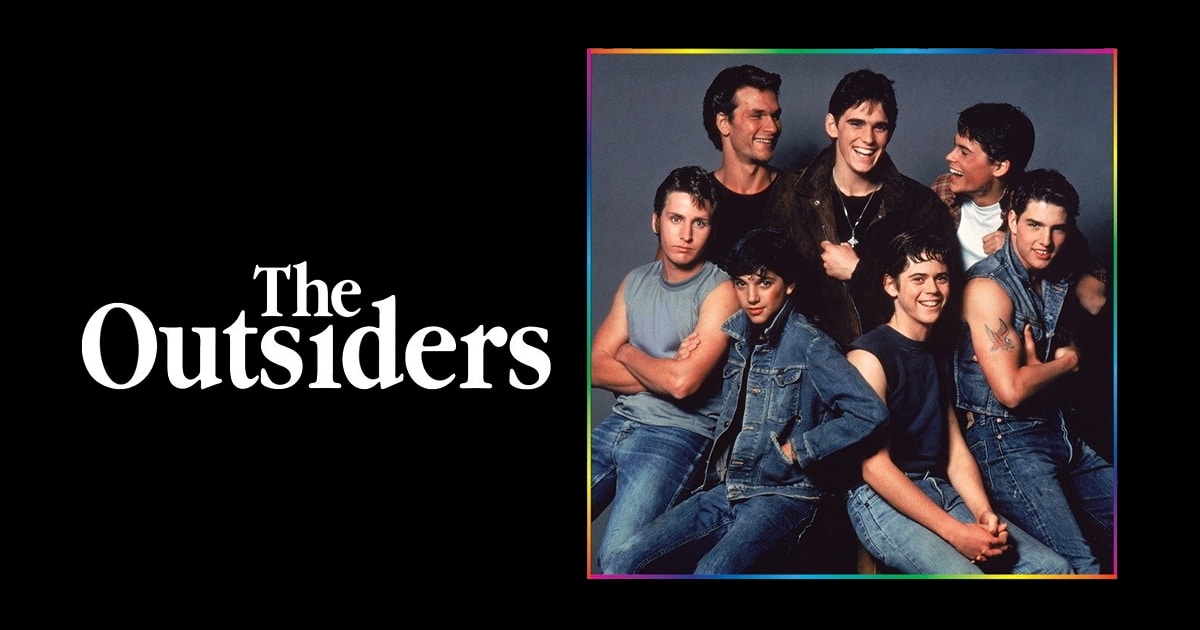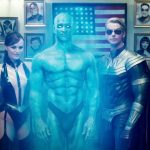The Outsiders (1983)

The Outsiders, directed by Francis Ford Coppola and released on March 25, 1983, is a seminal film in the genre of coming-of-age dramas. Adapted from S. E. Hinton’s 1967 novel of the same name, the film captures the essence of adolescent struggles and social division with a narrative that remains poignant decades after its release. The movie’s exploration of class conflict, identity, and the trials of youth is rendered with a blend of gritty realism and heartfelt empathy, making it a significant work in American cinema.
Set in the 1960s, The Outsiders chronicles the lives of two rival gangs in a small American town: the Greasers and the Socs. The Greasers, a gang of working-class boys characterized by their long hair and rebellious attitudes, are in constant conflict with the Socs, a group of affluent, privileged teenagers. The film’s narrative, rooted in Hinton’s semi-autobiographical novel, provides an intimate look at the challenges faced by young people from different socio-economic backgrounds as they navigate their identities and societal expectations.
The film centers on Ponyboy Curtis (played by C. Thomas Howell), a 14-year-old Greaser who serves as the story’s narrator. Ponyboy’s life is intricately tied to his older brother Darry (Patrick Swayze) and his friends, including Johnny Cade (Ralph Macchio) and Dallas “Dally” Winston (Matt Dillon). The Greasers’ struggle against the Socs escalates into a series of violent confrontations, leading to a tragic and pivotal event when Johnny kills a Soc, Bob Sheldon (Leif Garrett), in self-defense. This act of violence sets off a chain of events that forces the characters to confront their own values, fears, and aspirations.
Francis Ford Coppola’s direction is instrumental in bringing Hinton’s novel to life. Known for his masterful work on films like The Godfather and Apocalypse Now, Coppola applies his keen eye for character development and emotional depth to The Outsiders. His approach to the film blends dynamic visual storytelling with a deep focus on the internal and external conflicts faced by the characters. Coppola’s use of music, particularly the score by Carmine Coppola and the inclusion of popular songs from the era, enhances the film’s atmosphere and underscores its themes.

One of the film’s most remarkable achievements is its ensemble cast, which includes a mix of established actors and rising stars. The performances are marked by authenticity and emotional intensity, capturing the essence of teenage angst and the complexity of human relationships. C. Thomas Howell’s portrayal of Ponyboy provides a nuanced view into the mind of a young protagonist caught between the pressures of his environment and his desire for a better life. Patrick Swayze, as Darry, brings a sense of authority and vulnerability to his role as the eldest sibling who is struggling to balance his responsibilities with his own aspirations.

Ralph Macchio’s performance as Johnny Cade is particularly noteworthy. Johnny’s character arc, which involves his journey from a frightened, passive figure to a courageous and self-sacrificing individual, is one of the film’s emotional focal points. Matt Dillon’s portrayal of Dally Winston offers a compelling depiction of a character hardened by life’s adversities but who reveals a more vulnerable side as the story progresses.
The themes explored in The Outsiders are as relevant today as they were at the time of its release. The film examines the impact of social and economic divisions on young people, portraying how these divides shape their identities and relationships. The Greasers and Socs are emblematic of broader societal conflicts, and the film underscores the futility of such divisions through its characters’ shared experiences and struggles. The idea that both groups face their own challenges and emotional turmoil reinforces the film’s message about the common humanity that transcends social barriers.

In addition to its thematic depth, The Outsiders is notable for its visual style and period authenticity. The film’s depiction of 1960s American youth culture, including fashion, music, and social norms, provides a vivid backdrop for the story. Coppola’s attention to detail in recreating the era enhances the film’s realism and immerses viewers in the world of the Greasers and Socs.
Upon its release, The Outsiders received generally positive reviews, with critics praising its performances, direction, and adaptation of the source material. However, it also faced some criticism for its melodramatic elements and perceived simplicity in its portrayal of social issues. Despite these critiques, the film has since achieved a lasting legacy and is celebrated for its contribution to the genre of coming-of-age cinema. It remains a beloved classic, often studied in schools and appreciated for its portrayal of universal themes.
In conclusion, The Outsiders stands as a significant work in American cinema, capturing the struggles and aspirations of youth with sincerity and depth. Francis Ford Coppola’s direction, combined with strong performances from a talented cast, brings S. E. Hinton’s novel to life in a way that resonates with audiences across generations. The film’s exploration of social conflict, identity, and the human condition continues to offer valuable insights and remains a timeless reflection on the complexities of adolescence.











